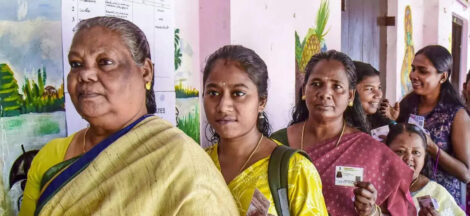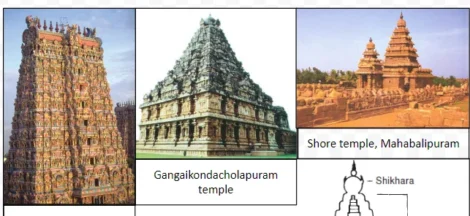- Shia Waqf Board surrenders claim to Ayodhya Land – During the hearings of the Babri Masjid demolition case last week, in a surprising development, the Shia Central Board of Waqf decided to surrender its claim to the temple land in the interest of the ‘integrity of the country’. The Waqf Board also argued that the Supreme Court need not reconsider the Ismail Farooqui (1994), since the Supreme Court had only said was that namaz was not essential to Islam and that it might also be offered in the open. Dr. Dhawan, appearing for the Sunni Waqf Board stated that the destruction of the Babri mosque in 1992 could be equated to destruction of the Bamiyan statues by the Taliban. The hearings will continue next week. [ Siddiq (D) v Mahant Suresh Das, Civil Appeal Nos. 10866-10867 of 2010, date of order: 13.07.2018]
- Centre is against decriminalisation of adultery offence – The Central government has sought the dismissal of the petitions challenging Section 497 IPC, which criminalises the offence of adultery, on the basis that Section 497 “supports, safeguards and protects the institution of marriage.” The Centre further argued that the issue was being deliberated by the Law Commission of India. It then drew attention to Justice Malimath Committee report, which had sought to make the provision gender neutral in 2003. The matter was referred to a constitutional bench in January this year. [Affidavit submitted by the Union of India in Joseph Shine v Union of India, Writ Petition (Criminal) No. 194 of 2018]
- Supreme Court rejects the review petitions filed by the Nirbhaya rape convicts– While dismissing the review petitions filed by the death row convicts in the Nirbhaya case, the Supreme Court rejected the idea of abolition of death penalty from the Indian Penal Code, even in the face of such abolitions in various countries of the world like UK and Australia. The bench noted that simply the removal from other countries does not suffice deletion from the Indian statute book. The State also highlighted the fact that the constitutionality of the death penalty had been upheld in Bachan Singh v State of Punjab, wherein the abolition of the death penalty was held to be strictly a legislative function. [Vinay Sharma v State of NCT of Delhi, Review Petition (Criminal) No. 671-673 of 2017 in Criminal Appeal No. 608& 609-610 of 2017, date of judgment: 09.07.2018]
- Court finds resistance to audits by NCPCR by states suspicious – The Supreme Court criticised the non-utilisation of funds by States allotted to them under the Integrated Child Protection Schemes. The States, as the Court noted, that have used them have not also provided any account of how the funds have been utilised. The Court had earlier issued guidelines on utilisation of funds for the benefit of children living in orphanages and child care institutions in general. The Court was deeply concerned with the fact that a large number of States had not permitted the National Commission for Protection of Child Rights to audit the records and even actively resisted the same, indicating that there was something to hide. NCPCR was re-ordered to conduct the audit. [Re Exploitation Of Children In Orphanages In The State Of Tamil Nadu v State of Tamil Nadu, Writ Petition (Criminal) No. 102/2007, date of order: 11.07.2018]
- Subramanian Swamy’s Petition in Sunanda Pushkar case disposed off – The Supreme Court has disposed off the petition filed by the BJP leader Subramanian Swamy demanding a Special Investigation Team or Central Bureau of Investigation probe into Sunanda Pushkar’s death. The Court noted that the charge sheet had been filed in the matter and thus there was no point in continuing the petition. The Court, though, had left the question of his locus unanswered. Delhi High Court had dismissed the plea stating that it was inspired by political motives. Swamy had claimed that the investigation had been botched up and Tharoor had interfered with it. [ Subramanian Swamy v Delhi Police, through the Commissioner of , dated Police, Special Leave Petition (Criminal) No. 8937 of 2017, date of order: 13.07.2018]
- High caste priests cannot refuse to perform religious ceremonies on behalf of lower caste persons – Uttarakhand High Court has held that high caste priests cannot refuse to perform religious ceremonies on behalf of the persons belonging to lower castes, in light of the practice of exclusion of SC/ST in Haridwar. The case originated when the devotees of Sant Ravidas complained against a stair case covering the temple. During the hearings of the case, the rigid and much prevalent practice of untouchability was highlighted. The petitioners even alleged that high caste priests refused to take alms from lower caste pilgrims. This was found to be in direct contravention of Article 17 of the Constitution. The Court further issued directions to deal with the problem of encroachment on the banks of the river and maintenance of cleanliness of the banks. [Pukhraj v State of Uttarakhand, Writ Petition (Public Interest Litigation) No.199 of 2016, date of order: 15.06.2018]
- Matrimonial discord not sufficient reason to permit termination of pregnancy – The Bombay High Court has held that matrimonial disputes could not be considered as a good enough reason to terminate pregnancy under the Medical Termination of Pregnancy Act, 1971. The woman in the case suffered from epilepsy, wanted to continue with her studies and also apply for divorce. She told the court that she had repeatedly asked her husband to have protective sex but he refused. The Court, after looking at the medical evidence, concluded that there was no imminent danger to her life and did not justify termination of pregnancy, especially since the woman was major and educated. [Neelam Choudhary v Union of India, Writ Petition No. 6430 of 2018, date of judgment: 19.06.2018]
- Law graduate confined to house by father over love affair set free by court – The Patna High Court had taken sou moto cognizance of the case of a female law graduate who had been confined to her home by her father over a love affair, disapproved by the family. The Court ordered that she would be free to go whereever she wanted and pursue her career in the way she intended. She has been given police protection, if and when she desires. The judges categorically recognised her right to live her life the way she desires and her parents could not be said to have the right to curtail the exercise of her rights – she has autonomy over her life. [Based On The News Item Uploaded On The Website Of News App Bar And Bench v State of Bihar, Civil Writ Jurisdiction Case No. 11689 of 2018, date of order: 12.07.2018]
IPA Service)
Prepared by Amritananda Chakravorty (amritananda.c@gmail.com) and Mihir Samson (mihirsamson@gmail.com), Delhi based practicing Advocates.
The post Weekly Round-Up of Major Decisions of the Courts in India as also Legal Policy Developments appeared first on Newspack by India Press Agency.



